Featured
 Democracy or the white supremacist mob: which side is the Republican party on? By Richard Wolffe / The Guardian
Democracy or the white supremacist mob: which side is the Republican party on? By Richard Wolffe / The Guardian
There is a clear and present danger for the very members of Congress who must now decide between protecting their own careers or protecting the lives of the people working down the hall. With the second impeachment trial of Donald J Trump starting next week, there’s no escaping the moment of decision for at least 50 Republican senators: are you with the United States or not? It is long past time to admit the blindingly obvious: the Republican party has been hijacked by fascist extremists. It is now a far-right organization in league with white supremacist and neo-Nazis who have made it painfully clear they want to overthrow democracy and seize power, using violence if necessary. Shown is the winged figure of democracy. Read more
Political / Social
 GOP Lawmakers Seek Tougher Voting Rules After Record Turnout, Election Losses. By Associated Press and HuffPost
GOP Lawmakers Seek Tougher Voting Rules After Record Turnout, Election Losses. By Associated Press and HuffPost
Republican lawmakers in statehouses across the country are moving swiftly to attack some of the voting methods that fueled the highest turnout for a presidential election in 50 years. Although most legislative sessions are just getting underway, the Brennan Center for Justice, a public policy institute, has already tallied more than 100 bills in 28 states meant to restrict voting access. More than a third of those proposals are aimed at limiting mail voting, while other bills seek to strengthen voter ID requirements and registration processes, as well as allow for more aggressive means to remove people from voter rolls. Read more
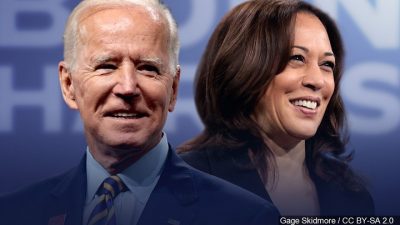 Word to the President: To Help Black America, Focus on Race. By Janell Ross / Time
Word to the President: To Help Black America, Focus on Race. By Janell Ross / Time
Because Biden and Harris have entered the White House at a time of multiple crises, all of them landing harder and exacting a greater toll on Black Americans than white Americans, the message carries a special urgency. They must focus on the cancer of racial inequality and the myriad and sometimes deadly ways that it expresses itself in American life, from police shootings to the disproportionately high number of Black and brown lives lost to COVID-19, these leaders say. At the very least, the Administration should use the power of policy-making, executive orders, federal agencies and the long reach of its annual spending plan to demonstrate to the Black voters so critical to putting them in the White House that they matter. Read more
Related: Black Power: Now or Never. By Charles M. Blow / NYT
Related: What Canceling Student Debt Would Do for the Racial Wealth Gap. By Naomi Zewde and
 A hidden pandemic: Grief in the African American community. By Mishal Reja / ABC News
A hidden pandemic: Grief in the African American community. By Mishal Reja / ABC News
Black Americans are 2.3 times more likely to die from COVID-19 compared to white Americans, when age is taken into account, an APM Research Lab analysis found. Long-standing health, economic and social inequalities have led to the disproportionate death rate, according to the Centers for Disease Control and Prevention. Black Americans also disproportionately have jobs that have increased COVID-19 exposure. With so many families losing loved ones, health experts warn of a potential crisis in the African American community: prolonged grief disorder. Read more
 ‘We are facing extinction’: Black farmers in steep decline. By Roxana Hegeman / ABC News
‘We are facing extinction’: Black farmers in steep decline. By Roxana Hegeman / ABC News
Agricultural communities across the country have seen a steep decline in Black farmers for generations, and nowhere is more illustrative of that than Nicodemus, where Alexander grew wheat and other crops. Nicodemus was the most famous of the Midwestern settlements where former slaves known as “exodusters” migrated more than a century ago, hopeful that farming their own land would help them escape racism and poverty. Black farmers made up 14% of the U.S. farming population in 1910 but today account for just 1.4%. Read more
 Navy must do more to counter hate speech and improve diversity, new task force finds. By Dan Lamothe / Wash Post
Navy must do more to counter hate speech and improve diversity, new task force finds. By Dan Lamothe / Wash Post
 Morehouse College to launch online program aimed at helping Black men with some credits finish degree. By Danielle Douglas-Gabriel / Wash Post
Morehouse College to launch online program aimed at helping Black men with some credits finish degree. By Danielle Douglas-Gabriel / Wash Post
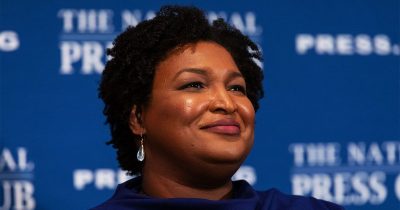 White Conservatives Lose It After Black Lives Matter and Stacey Abrams Are Nominated for Nobel Peace Prize. By Isheka N. Harrison / Atlanta Black Star
White Conservatives Lose It After Black Lives Matter and Stacey Abrams Are Nominated for Nobel Peace Prize. By Isheka N. Harrison / Atlanta Black Star
“What did she do to promote peace? Stirred up hatred and bigotry not peace – no unity just strife between parties and people – disgraceful!” a Facebook user identified as GreggSusan Stein wrote of Abrams’ nomination. The conservative criticism came Monday, Feb. 1, after news of the nominations broke. The racial justice movement was nominated by Norwegian Parliament member Petter Eide. He said he nominated the group “for their struggle against racism and racially motivated violence.” Eide, 61, said BLM has been a catalyst for raising awareness about inequality, not only in the U.S. but across the globe. Read more
 Why Are There So Few Black Economists at the Fed? By Jeanna Smialek / NYT
Why Are There So Few Black Economists at the Fed? By Jeanna Smialek / NYT
J. Monroe Gamble IV( shown) was the first Black research assistant to work at the Federal Reserve Bank of San Francisco. He started in 2018. That one data point speaks to a broader reality: Even as America’s central bank dedicates research and attention to racial economic outcomes and publicly champions inclusion, it has had a poor record of building a work force that looks like the population it is meant to serve. Read more
 Mind Boggling’ and ‘Deadly.’ This Is the Trump V.A.’s Racist Legacy. By Jasper Craven / NYT
Mind Boggling’ and ‘Deadly.’ This Is the Trump V.A.’s Racist Legacy. By Jasper Craven / NYT
A recent nationwide survey taken by the American Federation of Government Employees (AFGE) National VA Council, the union that represents 265,000 V.A. employees, found that 76 percent of respondents said they’d “experienced racially charged actions” on the job at the V.A. National V.A. firing and promotion figures, obtained by AFGE through a recent public records request, suggests a disproportionate number of firings among staff members of color. This data also indicates that white workers are almost twice as likely as their Black counterparts to be chosen for management positions. Read more
Historical / Cultural
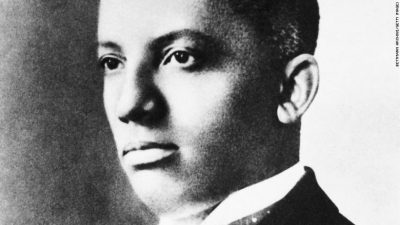 Black History Month: Meet the man who created it. By CNN Staff
Black History Month: Meet the man who created it. By CNN Staff
Carter G. Woodson, considered a pioneer in the study of African-American history, is given much of the credit for Black History Month. The son of former slaves, Woodson spent his childhood working in coal mines and quarries. He received his education during the four-month term that was customary for black schools at the time. At 19, having taught himself English fundamentals and arithmetic, Woodson entered high school, where he completed a four-year curriculum in two years. He graduated from Berea College in 1903 and went on to earn his master’s degree in history from the University of Chicago. He later earned a doctorate from Harvard. Read more
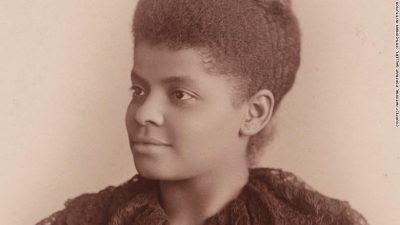
Ida Bell Wells-Barnett
My great-grandmother exposed lynchings. This is what she would say about the Capitol riot. By Michelle Duster / CNN
As I watched the mob of so-called “patriots” storm the Capitol with minimal law enforcement present, the fact that some of the vigilantes had plastic zip ties and weapons and walked away unharmed was mind-boggling. It reminded me of how mobs in the late 19th and early 20th centuries gathered to participate in and watch lynchings of Black people, take pictures of each other’s gleeful faces and convert them into postcards, and absolutely no one was arrested for murder. In fact, Wells concluded there were times that law enforcement officers were either part of the mob or did nothing to stop them. She wrote in the 1893 “The Reason Why” pamphlet: “The mob spirit had increased with alarming frequency and violence. Over a thousand black men, women and children have been thus sacrificed the past ten years. Masks have long since been thrown aside and the lynchings of the present day take place in broad daylight.” My great-grandmother would have probably been disappointed but not surprised that lawless White men today are met with a wink and a nod. Read more
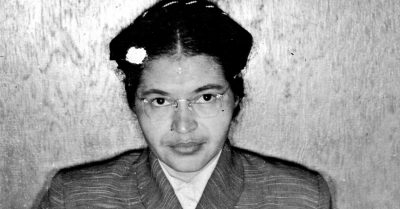 The Real Rosa Parks Story Is Better Than the Fairy Tale.
The Real Rosa Parks Story Is Better Than the Fairy Tale.
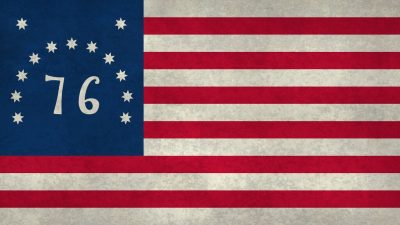 Trump’s 1776 Commission Was Unintentionally Revealing.
Trump’s 1776 Commission Was Unintentionally Revealing.
At its core, the 1776 report reveals a profound ignorance about what professional historians of the United States actually think and do. While most contemporary scholars in the field do lean left in their politics, none I know of holds “at the very least disdain and at worst outright hatred for this country,” as the report alleges. If they share any view of Americanism, it would probably echo President Barack Obama’s 2013 statement that the signal “lesson of our past” is “people who love their country can change it.” Read more
 He Wants to Save Classics From Whiteness. Can the Field Survive? By Rachel Poser / NYT
He Wants to Save Classics From Whiteness. Can the Field Survive? By Rachel Poser / NYT
Padilla, a leading historian of Rome who teaches at Princeton and was born in the Dominican Republic. For several years, he has been speaking openly about the harm caused by practitioners of classics in the two millenniums since antiquity: the classical justifications of slavery, race science, colonialism, Nazism and other 20th-century fascisms. Classics was a discipline around which the modern Western university grew, and Padilla believes that it has sown racism through the entirety of higher education. Read more
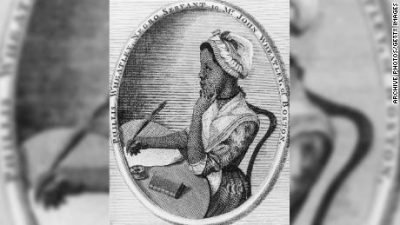 What this 18th century poet reveals about Amanda Gorman’s success. By Manisha Sinha / CNN
What this 18th century poet reveals about Amanda Gorman’s success. By Manisha Sinha / CNN
Amid the phenomenal response to Amanda Gorman, who delivered a poem to wide acclaim at President Joe Biden’s inauguration, lurked a bleaker current: responses that summoned for me the story of enslaved early American poet Phillis Wheatley. In 1773, Wheatley became not just one of the first Black women but one of the first American women to be published when her book of poems, “Poems on Various Subjects, Religious and Moral,” was printed in London. Wheatley traveled to England with her master’s son when her book was published, and according to biographer Vincent Carretta, probably returned to America only on the condition she be granted her freedom. Read more
 Authors Ibram X. Kendi and Keisha N. Blain on new historical book “Four Hundred Souls” By CBS This Morning
Authors Ibram X. Kendi and Keisha N. Blain on new historical book “Four Hundred Souls” By CBS This Morning
As we mark the start of Black History Month, CBS News contributor Ibram X. Kendi and historian Keisha Blain join “CBS This Morning” to discuss their new book, “Four Hundred Souls: A Community History of African America, 1619-2019.” They talk about the 90 writers and poets who collaborated in the book and why it’s important for them to highlight the diversity of Black America. View here
Related: Antiracism’s Ibram Kendi thinks big: Why not equality right now? By Khari Thompson / USA Today
 10 of the best fiction books by Black authors in 2021. By Kala Herh / NBC News
10 of the best fiction books by Black authors in 2021. By Kala Herh / NBC News
As we enter Black History Month, you may be considering finding some contemporary fiction from Black authors that underscores present and relevant social issues. To that end, we list below 10 of the most anticipated fiction books by Black authors, according to members of Goodreads. The books are all published in or going to be published in 2021 and have amassed significant ratings from a significant number of reviewers on Goodreads — the choices are also informed by how many Goodreads members have added these books to their “want to read” lists. Read more
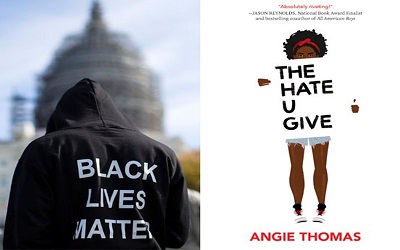 ‘The Hate U Give’ author Angie Thomas on the importance of humanizing Black men. By Jonathan Capehart / Wash Post Podcast
‘The Hate U Give’ author Angie Thomas on the importance of humanizing Black men. By Jonathan Capehart / Wash Post Podcast
Writing in the wake of the death of George Floyd, Thomas said, “The weight and the responsibility…felt even greater.” Listen here
 Robert Jones Jr.’s debut novel reclaims Black identity, pushing the slavery narrative beyond suffering. By Derrick Clifton / NBC News
Robert Jones Jr.’s debut novel reclaims Black identity, pushing the slavery narrative beyond suffering. By Derrick Clifton / NBC News
Black history in America, typically omitted or whitewashed, often requires extra labor from Black people to retell the narratives, add vital context and infuse ancestral wisdom to understand present-day conditions. Robert Jones Jr.’s debut novel, “The Prophets,” embodies this practice of reclamation. Jones’ offering, an instant New York Times bestseller, centers on Samuel and Isaiah, two enslaved Black teenagers who fall in love on a Mississippi plantation. Samuel and Isaiah carve out a relatively safe space between each other, even as they live through the horrific violence and degradation wrought by a white slave owner and his arbiters. Their bond also resists the forced procreation — sexual violence — imposed on the enslaved as a “business” investment for future labor. Read more
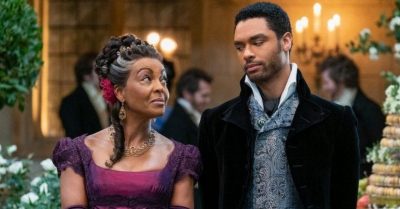 Blackness, Dehumanized: A Black Feminist Analysis of ‘Bridgerton.’ By Shaun Armstead / AAIHS
Blackness, Dehumanized: A Black Feminist Analysis of ‘Bridgerton.’ By Shaun Armstead / AAIHS
Since its release on Christmas Day, Bridgerton has attracted international attention for its racial cosmopolitan reenactment of early nineteenth-century Britain. In its first four weeks, 63 million households viewed the joint Shonda Rhimes-Netflix venture, making the series one of the top five most-streamed in the streaming service’s history. A multicultural reimagining of Julia Quinn’s novel, the show pivots on the romantic journey between Daphne Bridgerton, a white woman, and Simon Bassett, a Black man the Duke of Hastings. Read more
 Netflix’s ‘Bling Empire’ flaunts Asian 1% privilege amid the Covid pandemic. By Michelle Yang / NBC News
Netflix’s ‘Bling Empire’ flaunts Asian 1% privilege amid the Covid pandemic. By Michelle Yang / NBC News
In the promo for Netflix’s new reality TV series “Bling Empire,” a diamond-laden and heavily made-up socialite named Christine Chiu brags about her husband, a Los Angeles plastic surgeon. She claims he is a descendant of China’s Song dynasty and would be next in line to be emperor if the dynasty were still in place. But it isn’t, is it? The Song dynasty ended in 1279, so who cares? The elitism and classism spewed in this short clip effectively frames the show for what it is, but the timing of its release displays a disregard for the context of a global pandemic resulting in racist hate, an unprecedented economic crisis and political strife. Asians don’t need this kind of (mis)representation, especially now, when we’ve already been long battling the model minority myth and additional racism and resentment as a result of Covid-19. Read more
 Chris Rock: Truth, therapy and punchlines. By CBS News
Chris Rock: Truth, therapy and punchlines. By CBS News
Even on a cold day, Chris Rock doesn’t need a warm-up act to get going, sitting on the patio of his New Jersey home. “Let me just start by saying, you clearly take COVID very seriously,” said “CBS This Morning” co-host Gayle King, “because we’re sitting out here as human popsicles — nobody’s complaining!” Pointing out the crew, Rock said, “I’m just sayin’, it’s like, one, two, three, four, five, six, seven, eight, nine, 10, like, 15 people, in your house? Come on. I don’t know that guy. Read more
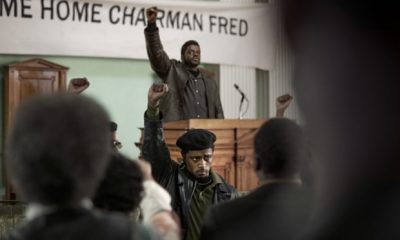 Judas and the Black Messiah review – electric Black Panthers drama. By Peter Bradshaw / The Guardian
Judas and the Black Messiah review – electric Black Panthers drama. By Peter Bradshaw / The Guardian
This fiercely watchable and passionately performed drama from the director Shaka King, with barnstorming performances from Lakeith Stanfield and Daniel Kaluuya – about the Chicago Black Panther leader Fred Hampton who in 1969, at the age of 21, was cold-bloodedly shot at home during a raid by the FBI. Judas and the Black Messiah is screening at the Sundance film festival and will be released in the US on 12 February, in the UK on 26 February and in Australia on 11 March. Read more
 Shemekia Copeland reigns as the greatest blues singer of her generation. Now she wants to fuse politics with the blues. By Carlo Rotella / Wash Post Magazine
Shemekia Copeland reigns as the greatest blues singer of her generation. Now she wants to fuse politics with the blues. By Carlo Rotella / Wash Post Magazine
Widely hailed as the greatest blues singer of her generation and the reigning Queen of the Blues, Charon Shemekia Copeland, 41, has grown impatient with business as usual in the blues: the eclipse of singers by endlessly wailing guitars; the willingness of the aging boomers who dominate the core listenership to hear “Sweet Home Chicago” or “The Thrill Is Gone” yet again; set lists featuring the usual good-times anthems and romantic laments and not enough resonance with vital issues of the day. Read more
Sports
 Doug Williams set path for Mahomes but racism still factor in NFL. By Mike Freeman / USA Today
Doug Williams set path for Mahomes but racism still factor in NFL. By Mike Freeman / USA Today
Doug Williams, the first Black quarterback to ever play in a Super Bowl, and one of just a handful of Black team executives, is asked why the NFL still has a difficult time hiring Black head coaches. His answer is blunt, truthful and important to hear. “The problem isn’t the leadership of the league,” Williams said. “I think (Commissioner) Roger Goodell and (Executive Vice President of Football Operations) Troy Vincent try their best. But their hands are tied. This is on the owners. There are some that apparently still have a difficult time getting past the skin color of a candidate. They are 32 entities and not all of them have open minds.” Read more
 Deshaun Watson is taking a stand against disingenuous NFL owners. It could change the league. By Jerry Brewer / Wash Post
Deshaun Watson is taking a stand against disingenuous NFL owners. It could change the league. By Jerry Brewer / Wash Post
Deshaun Watson, just 25 years old, grew up too fast for the Houston Texans. He sees them now for the inept franchise they are, just as he sees an NFL that is not all fun, football and riches. His saga, which has escalated to the trade request and staredown phase, is a bizarre case of a team draining its young superstar’s idealism in record time. Read more
 Kylin Hill fought to change the Mississippi flag. Next up: The NFL. By Michael Lee / Wash Post
Kylin Hill fought to change the Mississippi flag. Next up: The NFL. By Michael Lee / Wash Post
If Kylin Hill has a regret about last year, it’s that he wasn’t able to run into Davis Wade Stadium carrying Mississippi’s new state flag, waving it for all to behold. Hill was the one who put himself out there in June, declaring in a 98-character tweet that he wouldn’t play another game for Mississippi State unless his home state changed its flag. He was the one who had to see those hate-filled replies on social media, who had to fear for his mother and grandmother when the racist backlash spilled into their homes in Columbus, Miss. He was the one who risked his college football career — and maybe his NFL draft prospects — by taking a stand. Read more
 Bruce Arians has made diversity among staff a priority as Tampa Bay Buccaneers head coach. By Jim Martin / CNN
Bruce Arians has made diversity among staff a priority as Tampa Bay Buccaneers head coach. By Jim Martin / CNN
At age 68, in his second season with the Tampa Bay Buccaneers, Arians is in the Super Bowl for the first time as a head coach. And he’s gotten there with a coaching staff that’s as diverse as one will see in the NFL. All three of his coordinators — defensive coordinator Todd Bowles, offensive coordinator Byron Leftwich and special teams coordinator Keith Armstrong — are Black. So is assistant head coach and run game coordinator Harold Goodwin. Read more
Site Information
Visit our home page for more articles, book/podcast and video favorites. And at the top of this page register your email to receive notification of new editions of Race Inquiry Digest. Click here for earlier Digests.
About Race Inquiry and Race Inquiry Digest. The Digest is published on Mondays and Thursdays.
Use the buttons below to share the Digest in an email, or post to your Facebook, Linkedin or Twitter accounts.